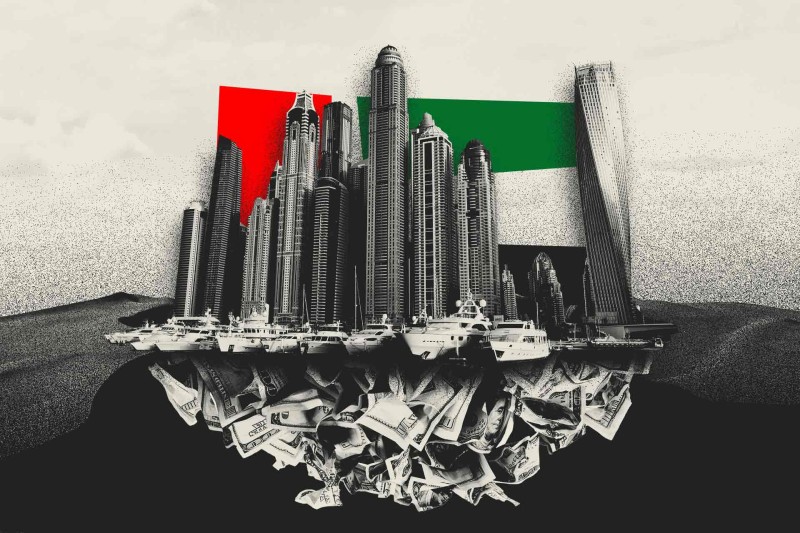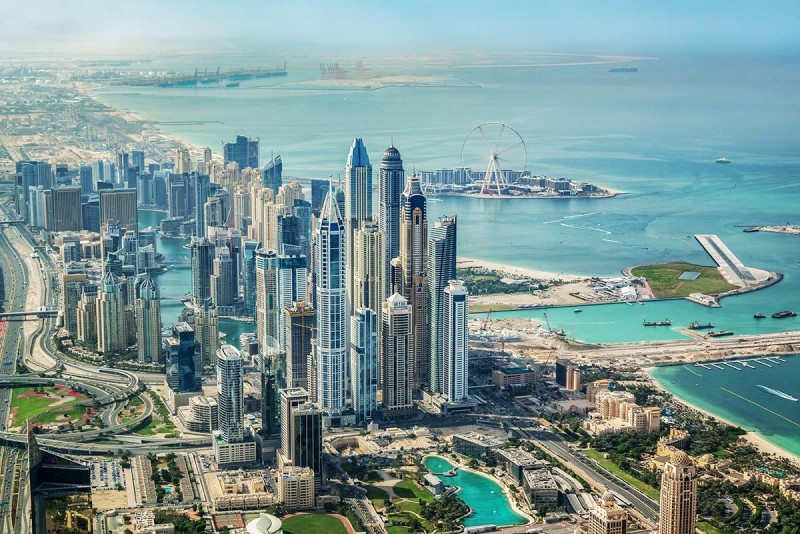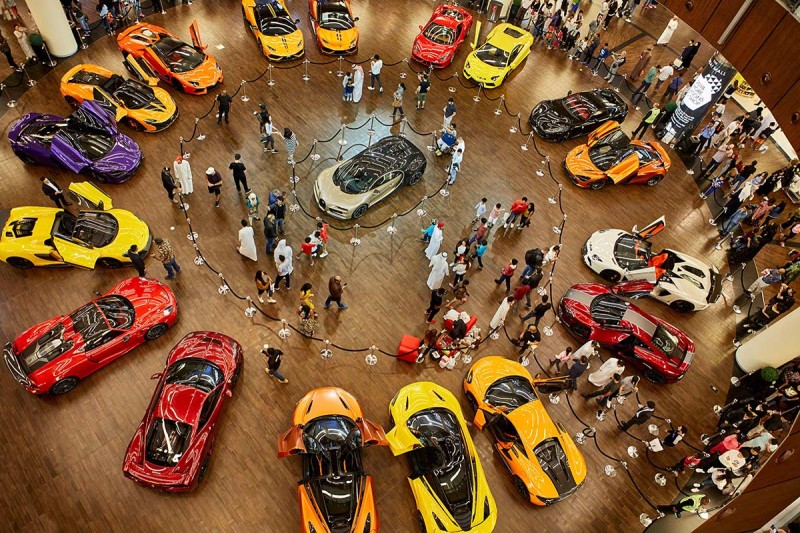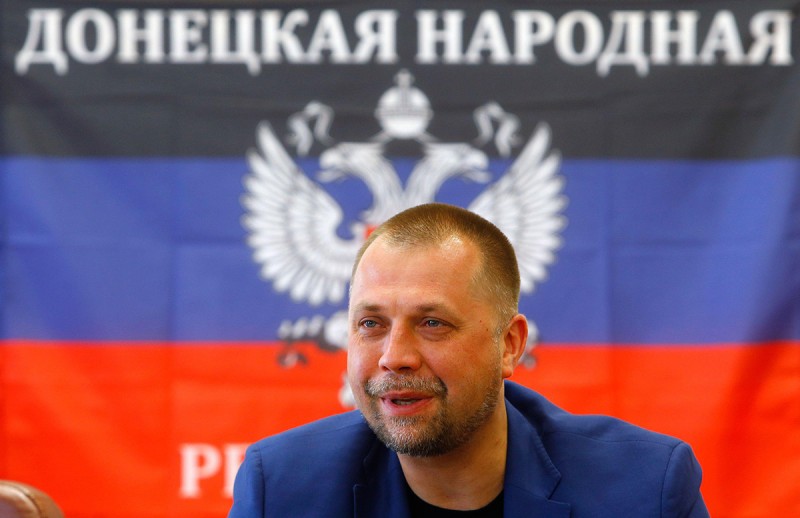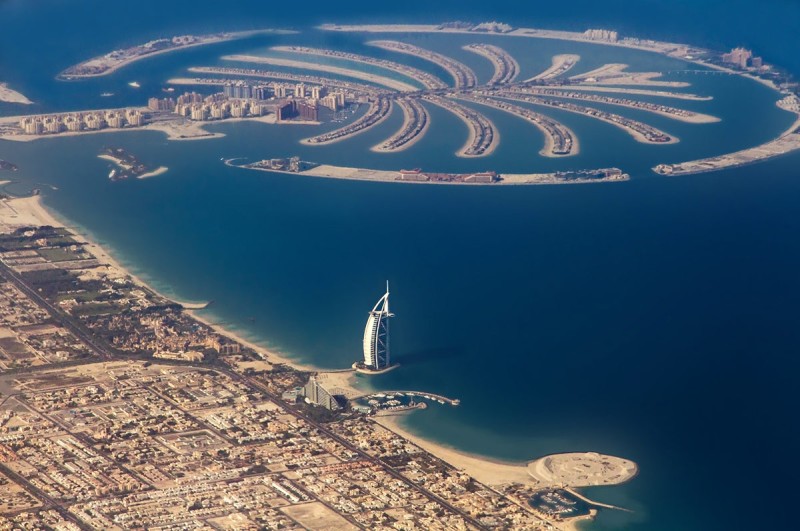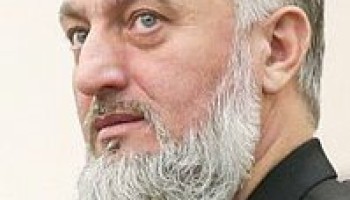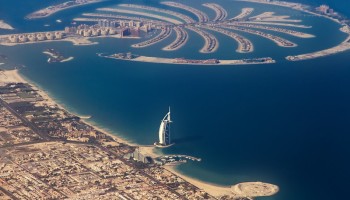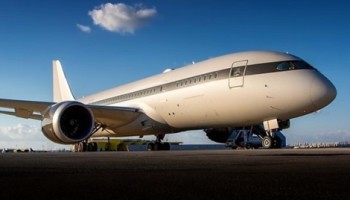Spectacular skyscrapers, luxury lifestyles, and sunny beaches — these are the hallmarks of Dubai, a Middle Eastern financial hub known as a playground for the global rich.
But the glamorous emirate also has a darker reputation as a tax haven, a top destination for illicit cash, and a preferred hub for money laundering, often through real estate.
Now, a new leak of Dubai property data has exposed just how many foreigners have poured their money into apartments and villas there.
The data, which dates from 2020, was obtained by the Center for Advanced Defense Studies (C4ADS), a non-profit organization based in Washington, D.C., that researches international crime and conflict. It was then shared with Norwegian financial outlet E24, which coordinated an investigation into the real estate.
Project Partners
Reporters from over 20 publications, including many OCCRP member centers, contributed to this joint investigation. They include:
The leak provides the first detailed public overview of those who bought property in this important Middle Eastern financial center. In this initial phase of the project, reporters focused on the European names on the list.
Many of them are residents or legitimate investors. But reporters identified numerous owners of Dubai real estate who have been accused or convicted of crimes or are under international sanctions. Others are public officials whose ownership of pricey properties is difficult to square with their known incomes.
They include more than 100 members of Russia's political elite, public officials, or businesspeople close to the Kremlin, as well as dozens of Europeans implicated in money laundering and corruption. Several European officials and lawmakers who have been accused of mishandling public funds are also among the listed owners — and some have failed to officially declare their Dubai properties.
The Dubai skyline.
Among the noteworthy figures who own Dubai real estate are Ruslan Baisarov, a Russian businessman close to Chechen dictator Ramzan Kadyrov, and Alexander Borodai, a sanctioned member of the Russian Duma known for becoming “prime minister” of the self-proclaimed Donetsk People’s Republic during Russia’s 2014 invasion of Ukraine.
Other Russians with Dubai properties include Roman Lyabikhov, a U.S.-sanctioned lawmaker from the Communist Party, and Dmitry Rybolovlev, a controversial oligarch.
Among the Europeans is Daniel Kinahan, the alleged leader of an Irish criminal group involved in cocaine trafficking and other crimes. He is known to be based in Dubai, and was sanctioned by the United States last month.
Another is Czech citizen Tibor Bokor, the executive director of a cryptocurrency exchange that was sanctioned by the U.S. Treasury last year for enabling criminals who had obtained money through ransomware to transmit their illicit proceeds. Miroslav Výboh, a Slovak fugitive from corruption charges, is another alleged criminal who is listed as owning Dubai real estate. He is believed to be hiding out in the emirate.
Baisarov, Borodai, Bokor, and Lyabikhov did not respond to requests for comment. A lawyer for Výboh confirmed his ownership of a Dubai apartment.
These individuals’ presence in Dubai’s real estate market registries highlights the danger that the emirate’s loose residency requirements and “few questions asked” approach to regulation enables questionable figures to use it as a home away from home, a place to launder their illicit gains through real estate, or simply to store their wealth.
“Real estate is unique when it comes to money laundering because, unlike any other form of money laundering, you actually can live in and do business through your money laundering,” said Jodi Vittori, a professor at Georgetown University and expert on illicit finance.
Dubai is one of the world's most secretive offshore jurisdictions, mainly due to lack of financial transparency, according to The Tax Justice Network.
The advocacy group ranks the United Arab Emirates, which includes Dubai, as one of the world’s top ten enablers of both corporate tax abuse and financial secrecy.
“Dubai has an ask-no-questions, see-no-evil approach to commercial and financial regulation, as well as foreign financial crimes,” the group wrote in a 2020 assessment. “It has consequently attracted large financial flows and some of the world’s most high-profile criminals.”
A display of luxury cars at the Dubai Mall, the largest in the world.
The United Arab Emirates also does not have an extradition treaty with the European Union, the United States, Germany, or many other countries. In practice, this means wanted criminal suspects can hide out in Dubai to avoid facing justice.
Representatives of the United Arab Emirates’ Foreign Office and the Dubai Land Department did not respond to requests for comment in time for publication. But the UAE Embassy in Oslo did provide a statement to E24, OCCRP, and their media partners.
“The allegations made with regard to Dubai property ownership records are factually inaccurate. The UAE operates clear regulatory frameworks that comply with international laws and standards designed to combat financial crime,” the Embassy said. “Dubai Land Department processes and activities are a cornerstone of these efforts.”
A Real-Estate Blind Spot
Dubai is a sheikhdom with internal autonomy and is part of the United Arab Emirates. But it has built its economy around being a home for expatriates.
In the 1990s, the emirate’s oil revenues plummeted and its leadership began looking abroad for investments. It found its path forward in real estate, constructing scores of new residential developments, the tallest building in the world, and two artificial peninsulas shaped like palm trees. (One was never finished due to the financial crisis of 2008, when many real estate projects ground to a halt due to credit shortages.)
Since then, real estate development has been a significant source of income for the emirate, attracting foreign capital and wealthy people from around the world. Today, Dubai has three million residents, but only half a million are Emirati nationals.
The leak of property data examined by reporters includes a total of 800,000 Dubai properties owned by 274,000 private individuals and companies from around the world. It shows that the average owner in Dubai possesses more than three properties.
“Until now, no one has had this kind of information about the whole real estate market in such a well-known tax haven,” says Annette Alstadsaeter, a professor of tax economics and director of the Skatteforsk Centre for Tax Research at the Norwegian University of Life Sciences.
Alstadsaeter leads an international group of academics who have studied the leaked material and have just published a paper in conjunction with this investigation.
Based on publicly available information on property prices, the researchers estimate that foreign individuals and companies have invested over $145 billion in Dubai's housing market. In comparison, offshore-owned real estate in London, also considered a major hub for foreign property investors, was estimated to be worth $66 billion in 2019.
People and companies connected to Europe and Russia — the focus of this investigation — own more than $31 billion of this total.
“This is the first time we have an actual evident sum of net worth of both offshore and locally owned properties in a tax haven,” says Gabriel Zucman, an associate professor at the University of California, Berkeley.
Zucman is one of the world's leading experts on tax havens. He heads the EU tax observatory hosted by the Paris School of Economics and has followed the research into leaked data from Dubai.
“Until recently we could not address this kind of hidden wealth with concrete numbers, but this leak changes that. This project is a first step of shedding light on the rise of investments in real estate in tax havens as part of the broader globalization. It has not been studied much before because of the lack of data,” Zucman says.
Estimating the Value of Dubai Real Estate
Moscow on the Gulf
A noteworthy glimpse into Russian property ownership in Dubai was provided last year by the team of imprisoned Russian opposition leader Alexei Navalny.
In December, his Anti-Corruption Foundation published a lengthy investigation into Alexander Borodai, a Russian lawmaker who bought a 104-square-meter apartment in the luxurious Grandeur Residences-Maurya complex on Palm Jumeirah, an elite man-made peninsula in the shape of a palm.
Borodai bought the apartment, worth over $400,000, in 2015, just as his star was rising in Russian politics.
In early 2014, he became “prime minister” of the Donetsk People’s Republic, a self-proclaimed and internationally unrecognized pro-Russian statelet in Ukraine’s eastern Donetsk region. He held that post for roughly four months before ceding it to a Donetsk local and becoming his deputy.
Alexander Borodai at a news conference in Donetsk on June 21, 2014.
He returned to Russia and, in 2021, was elected to the State Duma, the lower house of the Russian parliament, as a member of the ruling United Russia party. He did not list his Dubai apartment in his mandatory asset declaration.
The data in the C4ADS leak matches the findings of Navalny’s team, confirming that Borodai — who is under U.S., EU, U.K., Swiss, Canadian, and Australian sanctions — owns the apartment.
It also includes much more: As it turns out, more than 5,300 citizens and people connected to the Russian Federation are listed as owning over 9,700 properties in Dubai, making Russians among the largest groups of foreign real estate investors there.
Though most are little-known private individuals, others are prominent politicians like Borodai, state officials, and oligarchs.
Roman Lyabikhov, another Duma lawmaker, is also listed as owning a Dubai property: a 109-square-meter apartment in the Amwaj 4 building, part of an older development in the Dubai Marina area. It is worth approximately $430,000. Like his fellow legislator, he also did not list it in his asset declaration.
He is under U.S., U.K., EU, and Canadian sanctions.
Russian oligarch Dmitry Rybolovlev is listed as owning a villa on Palm Jumeirah’s al Khisab frond, worth an estimated $3.5 million.
The Palm Jumeirah development.
Unlike some other oligarchs, Rybolovlev has stayed further away from Russian politics. He has reportedly lived in Europe since 2010, after he was forced to sell his majority share in the Russian mineral fertilizer producer Uralkali to three well-connected Russian businessmen.
Rybolovlev, a Cypriot citizen, is currently majority shareholder and president of the AS Monaco soccer club. In 2018, a judge in Monaco named the Russian oligarch a formal suspect in a corruption investigation, alleging that he had used gifts and football tickets to influence local law enforcement in a conflict with an art dealer.
That was not Rybolovlev’s first tangle with controversy. In 2008, he purchased a mansion in Palm Beach, Florida from Donald Trump for $95 million — netting the future U.S. president a reported $54 million in profit. That would later draw scrutiny after Trump was elected president and faced accusations that Russia had conspired to help him win the election. Rybolovlev later sold off the property.
Another prominent Russian who appears in the leak is Ruslan Baisarov, who is listed as owning five apartments in the Tiara Residences, a group of luxury high-rises on Palm Jumeirah’s trunk, and a villa on the Palm’s al Bumaan frond.
Together, the six properties are worth about $8.5 million.
Baisarov is known for his close ties to Chechen leader Ramzan Kadyrov, who has been implicated in grave violations of human rights, including torture, and has supplied soldiers and military resources to Russia’s invasion of Ukraine this year.
Baisarov has financed Kadyrov’s prestigious Veduchi ski resort outside the Chechen capital Grozny, supported the Chechen leader’s sometimes-bizzare projects, and made public appearances with him, including at the St. Petersburg International Economic Forum. The close relationship has earned Baisarov the nickname “Kadyrov’s wallet.”
Kadyrov is under U.S., U.K., EU, Swiss, Canadian, Australian, and Japanese sanctions.
Criminal Europe
Other Dubai property owners are figures from the international criminal scene, such as alleged cocaine trafficker Daniel Kinahan, who has reportedly found refuge in the emirate.
In the data leak, Kinahan is listed as the owner of a sizable 115-square-meter office in the exclusive Jumeirah Bay Tower 3, 15 minutes’ drive from the beach. Two companies Kinahan co-founded over the years have listed the same unit, number 3005, as their office, according to business records and a recent article in the Irish Times.
Information about Kinahan’s passport and Emirates ID in the leak suggests he acquired this property between the spring of 2017 and January 2018. At that time, his alleged involvement in drug trafficking had already been publicly known for years. A U.S. diplomatic cable sent from Sierra Leone to Belgium in 2009, and published two years later by Wikileaks, named Kinahan and described him as “an Irish businessman involved in narcotrafficking throughout Europe and currently the target of a major investigation.”
The “Kinahan Organized Crime Group” (KOCG) has operated in Ireland, the United Kingdom, Spain and the United Arab Emirates for years. Irish and U.K. courts have concluded that the group is involved in international drugs and firearms trafficking and in international money laundering.
“The KOCG also frequently uses Dubai as a facilitation hub for its illicit activities” and the activity has led to numerous murders, the U.S. Treasury Department said in a statement last month, announcing sanctions on Kinahan and other members of the group.
The announcement followed a major investigation involving multiple police agencies, and the U.S. ambassador to Ireland has announced a $5 million reward to anyone who helps arrest Kinahan or his father or brother, who are also sanctioned.
Kinahan has denied being a crime boss.
Another colorful character who appears in the data is Francesco Giordano, a Milan-based businessman who works in the meat industry.
Giordano and his romantic and business partner, Larisa Andreea Hangiu, are listed as owning three apartments together in Dubai. They’re also listed as owning one apartment each separately. Together, their properties are worth over $550,000.
Giordano’s business selling meat back home in Italy may explain these assets — but that might not be the whole story.
In 2018, Giordano was arrested by the Italian anti-mafia police along with 27 other people and charged with tax evasion.
According to investigators, he had established a complex network of companies in northern Italy through which he dodged taxes on the profits from his business. He then laundered the money to companies in Apulia, his home region, with the help of a local mafiosi.
Through a network of nominees, they withdrew cash from the bank and stashed it in various locations, including the walls of villas. His partner Hangiu was also charged after police found cash hidden in her villa outside Milan.
The police seized 27 companies, luxurious villas, and cars. No Dubai assets were found at the time. However, in 2015 Giordano was stopped by customs officers at an Italian airport while on his way to the Emirates carrying over 200,000 euros in checks and cash.
Two years later, thanks to a wiretapped conversation, the police discovered that a crooked cop had tipped Giordano off that he was under investigation for money laundering and that the police knew he was laundering his profits into restaurants in Rome and Dubai.
In February 2022, Italian prosecutors charged Giordano, Hangiu and 73 other people with 180 million euros’ worth of international tax evasion. Giordano is currently in pre-trial detention.
Neither his lawyer nor Hangiu responded to a request for comment.
Evading taxes on meat profits sounds old-fashioned. But another European with Dubai property allegedly had a much more modern criminal enterprise.
According to the leak, Tibor Bokor, a Czech venture capitalist, is listed as owning three apartments in Dubai worth $455,000.
He previously served as the executive director of a sanctioned Czech-registered cryptocurrency exchange based in Moscow. The U.S. Treasury sanctioned the exchange, called SUEX OTC, last year, alleging that 40 percent of its transaction history was associated with illicit actors. It was the first case of the U.S. imposing sanctions on a cryptocurrency exchange.
The emirate is also reportedly the hideaway of a Slovak businessman wanted on corruption charges. Miroslav Výboh was a well-known lawyer and lobbyist and had even served as Monaco’s honorary consul in Slovakia.
He has been sought by Slovak police since August 2021, when two of his alleged co-conspirators in a corrupt scheme related to IT service orders for a government agency were arrested.
Výboh himself could not be found at the time. But a few months later, fans of Monaco Formula One driver Charles Leclerc published a photograph of Leclerc at a Dubai restaurant. Výboh, who enjoys motorsports and has driven in the Ferrari Challenge, was among the people gathered around the table.
In Dubai, Výboh is listed as owning one apartment worth nearly $2.7 million in the Alef Residences complex on Palm Jumeirah.
In an email to OCCRP, Výboh’s lawyer, Ladislav Smejkal, said that Výboh purchased the apartment in 2017, while the building was still under construction, but never planned to live in it. Construction was completed only in 2021, and the apartment is currently in a “shell and core” condition.
Due to the rise in UAE real estate prices, Výboh is currently trying to sell the apartment, Smejkal said.
With reporting by Pavla Holcova, Atanas Tchobanov, Ana Poenariu, Bianca Albu, Florin Râșteiu, Attila Biro, Cecilia Anesi, Francesca Cicculli, Edoardo Anziano, Riin Aljas, Oliver Kund, Márton Sarkadi Nagy, and Zuzana Šotová.
